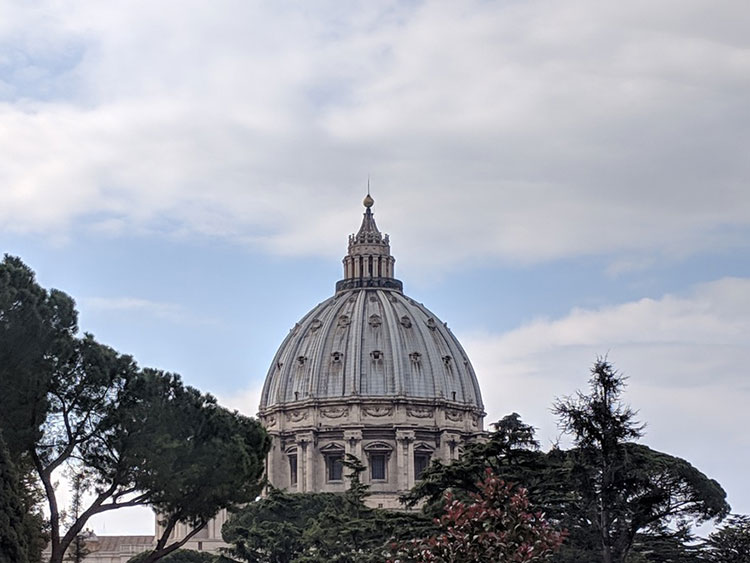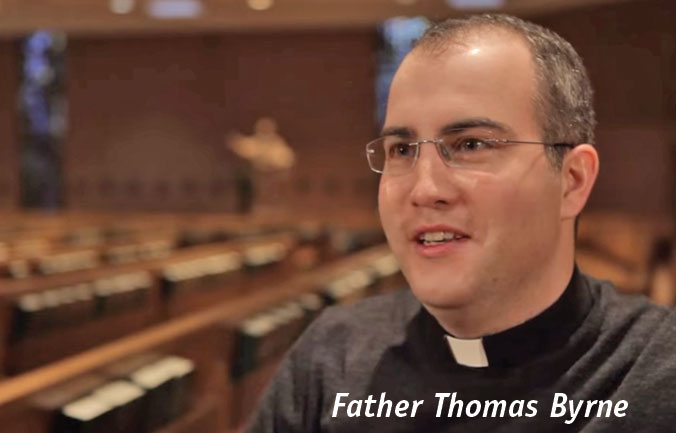
As the Catholic Church finds itself once again addressing questions of abuse and cover-up by clergy, some observers are calling for additional attention to be paid to priestly formation.
For example, participants of a seminar at the School of Theology and Ministry at Boston College recently issued a statement urging seminaries to prepare priests to work collaboratively with all believers, especially women, rather than forming them as set apart from the rest of the community.
Furthermore, in a Religion News Service column, Jesuit Father Thomas Reese urged that attention be given to priests’ pastoral skills, arguing that some priests coming out of today’s Catholic seminaries are too authoritarian. In some schools, he wrote, “seminarians are not taught to listen, to delegate, to work with committees, or to empower the laity, especially women.”
And just last year a group of U.S. priests released a statement expressing concern about problematic priestly formation that doesn’t follow a pastoral model faithful to the Second Vatican Council.
These concerns are being voiced while U.S. bishops are simultaneously working on a new edition of the Program of Priestly Formation, the document that serves as a guide for Catholic seminaries. It is set for a vote at the fall 2019 meeting of the United States Conference of Catholic Bishops.
The Seminary Formation Council (SFC), a new group made up of experienced seminary leaders, is trying to address some of what they perceive as opportunities for improvement in formation — specifically the need to “form the formators,” that is, to teach formation as a discipline to the people who actually do that formation. The SFC is now offering a comprehensive two-year Certificate in Seminary Formation for Missionary Discipleship for advisors, faculty, administrators, vocation directors, and others who work in the field of priestly formation.
The SFC program is a “real gift to the church,” says Father Thomas Byrne, who is associate dean of formation, director of Chicago seminarians, and director of the Teaching Parish Program at Mundelein Seminary in Illinois. Byrne is also a participant in the SFC’s first cohort.
Byrne credits the new program with helping him make the transition from parish priest to his current position. Of course, as a seminarian he was on the receiving end of formation, “but as I got into the job, I realized how different it was from being on the other side of the desk — to be actually giving formation.”
Byrne believes the program is “absolutely essential” for addressing some of the leadership issues the church is facing: sexual abuse, to be sure, but also poor preaching, lack of connection, and other concerns.
While seminary faculty members complete years of study in their academic disciplines, those in formation often have little if any preparation because few schools offer such training. But some do. For example, the Society of St. Sulpice, a religious community that operates several seminaries in the United States and Canada, offers an Institute for Seminary Formators, a one-week program held in alternate years. And the Institute for Priestly Formation in Omaha, Nebraska, offers a training program for spiritual directors who address seminarians’ spiritual life in the “internal forum” — that is, in the sacrament of reconciliation.
“The goal is an integrated person”
Spiritual formation — which focuses on a seminarian’s relationship with God — is just one of the four pillars of formation outlined by Pope St. John Paul II in his 1992 apostolic exhortation, Pastores Dabo Vobis (published in English as “I Will Give You Shepherds”).
The other three pillars are:
- Intellectual. Formation in philosophy and theology, primarily through academic coursework.
- Pastoral. Formation in ministry, including through field placement or clinical pastoral education (CPE).
- Human. Formation that includes “affective maturity,” healthy sexuality, and the ability to relate to others.
In the “external forum” — that is, outside the confessional — formation directors mentor and eventually evaluate candidates for priesthood in all four areas, in what some call a “whole person” approach.
“The goal is an integrated person,” says Auxiliary Bishop Andrew Cozzens of the Archdiocese of St. Paul and Minneapolis, who serves as president of the SFC board. He also is on the committee that is revising the Program of Priestly Formation.
The key to formation is “developing the right kind of relationship with the seminarian, so that the appropriate self-disclosure can happen so there can be growth,” Cozzens says. “Our program is designed to facilitate that in our seminaries.”
Participants of the SFC program move through eight modules that cover everything from virtue to psychology to evangelization, with an emphasis on practical skills that are then honed in small groups. Faculty members serve as the formation advisors or spiritual directors.
The curriculum reflects Pope Francis’ priorities — particularly the importance of “accompaniment,” or individualized mentoring and spiritual direction — as outlined in Ratio Fundamentalis Institutionis Sacerdotalis (published in English as “The Gift of the Priestly Vocation”), a 2016 document from the Vatican Congregation for the Clergy.
Forty-two participants from 22 different seminaries have completed six of the program’s eight modules. To accommodate seminaries’ academic schedules, the modules are held in summer, late November, and February. Another cohort is set to begin in June.
“If not us, then who?”
Hosted at St. Vincent de Paul Regional Seminary in Boynton Beach, Florida, the program is facilitated by the SFC, which was formed following a 2015 conference in which several rectors noted the lack of training for those who work in formation.
“We started daydreaming about who could do this. But then we said, ‘If not us, then who?’” recalls Monsignor David Toups, president-rector of St. Vincent de Paul and treasurer of the SFC board. “If we feel this in our hearts and see the need, maybe we can make a contribution to the Catholic seminary community.”
The program aims to assist those in formation — usually priests, but occasionally laypeople — to embrace what Toups terms “a call within a call.”
“For most of us who are diocesan priests, to be in a seminary as our primary apostolate is a shift in gear from being in a parish community,” he says. “But this is the most important mission in the church.”
In the past, seminaries tapped “good priests” to work in formation, but often did not train them in mentoring skills. Toups says the new program fills that void.
“It’s an invaluable investment for any seminary to help people sharpen their skills and grow in their own formational abilities,” he adds. “It’s important work that we do ultimately for the people of God … to help seminarians become as integrated as possible, so they can really take on the person of Jesus Christ and be able to present the Gospel to today’s world. That’s the bottom line.”
In addition to providing practical information for those in formation work, the SFC program also builds community and creates a network among those who work in the profession.
“I feel I’ve learned as much from my colleagues as from the presenters,” says Byrne, who works with a team of about eight people on formation at Mundelein, two of whom are also attending the SFC program.
Together with careful admission practices, solid formation can address some of the problems the church is currently facing, SFC leaders say.
Cozzens believes that seminaries have done “a good job” of psychologically evaluating applicants for pedophilia, and he suspects that very few professions give as much attention to individuals as Catholic seminarians receive today.
“But the deeper issues, which can sometimes lead to problems, are still very real,” he says. “This program teaches formators how to get at the root problems seminarians may be dealing with.”
Online resources and documents